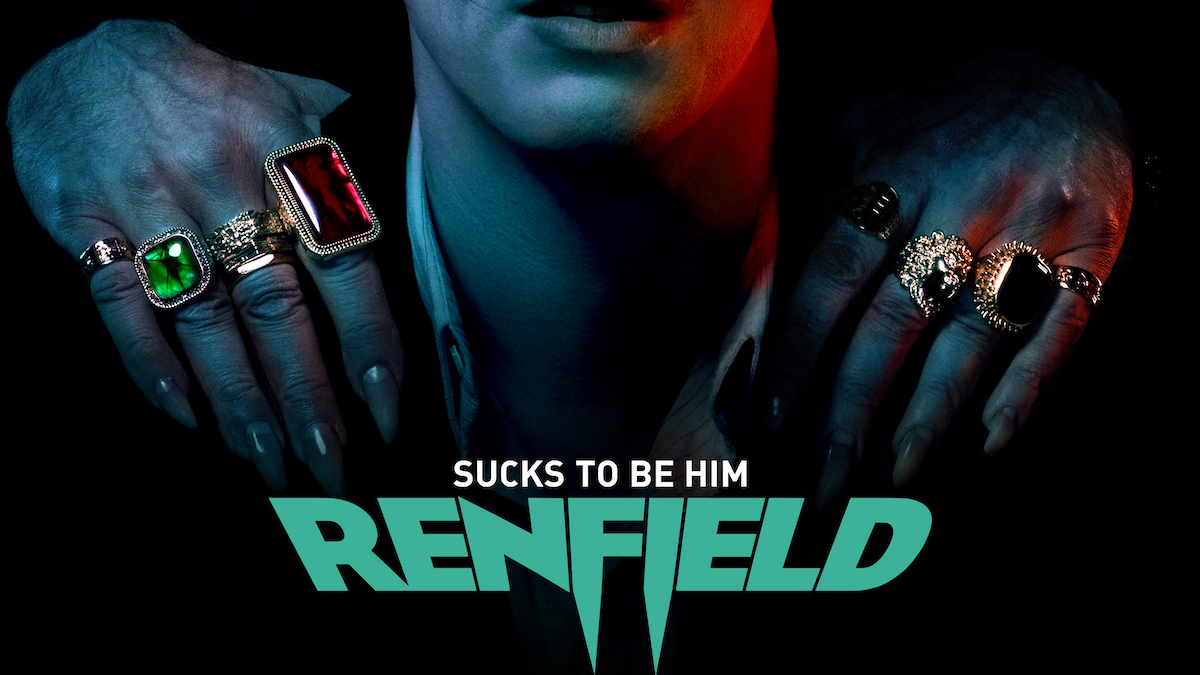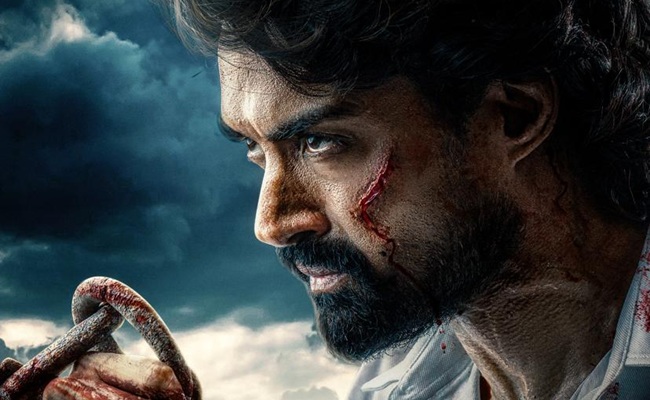Video by @youtube Rama’s Screen
SUPPORT Rama’s Screen at https://www.patreon.com/ramascreen
Fans far and wide were delighted to see their favorite mutants take the stage at this year’s Los Angeles Comic-Con. Since its debut in 1992, X-Men: The Animated Series has become a staple of not just children’s television, but television period. Taking the stage for this special panel was writer/director/animator Larry Houston, as well as voice actors Chris Britton (Mr. Sinister), Lenore Zann (Rogue), George Buza (Beast), Chris Potter (Gambit), and Cal Dodd (Wolverine).
Each actor shared their own story about what it was like coming into audition for the first time for these iconic characters. While Dodd and Zann both stated they didn’t know the comic book, Buza shared that he had been a fan since childhood and tried his absolute hardest to get on the show. Potter shared that he went into the audition on a whim without really understanding the depths of the X-Men characters and the writing that was going into the show. However after booking the job, he came to find that it stands as one of his most cherished projects. He also shared that he had auditioned for first live-action X-Men film back in the late 90s, but ultimately walked away when he learned that Gambit was not slated to appear in the film and that he was being considered for the role of Cyclops.
Zann shared that she almost wasn’t a part of the original series because she didn’t go to the initial auditions because her main focus had been another series she was working on at the time. At the urging of her agent she went to one of the final callback audition and had gotten seen for the first time. From the second the producers heard Rogue’s southern drawl, they knew they had her.
In closing, Houston stated that for the casting process, most of the producers in LA didn’t search for local television actors. They sought out actors that had a strong theatre background, particularly in Shakespeare, so that the weight of the material could be properly conveyed. One might assume it’s safe to say that the right choice was made, as X-Men the Animated Series has touched the lives of millions.
X-Men: The Animated Series is currently available on DVD and will soon be available for streaming on Disney +.

Streaming
The electric state

“The Electric State,” now streaming on Netflix, is a science fiction adventure directed by Anthony and Joe Russo. The screenplay, crafted by Christopher Markus and Stephen McFeely, is loosely based on Simon Stålenhag’s 2018 illustrated novel of the same name. The film boasts a star-studded cast, including Millie Bobby Brown as Michelle, Chris Pratt as Keats, and features voices from Anthony Mackie and Woody Harrelson. With a runtime of 128 minutes, the movie transports viewers to a retro-futuristic 1990s America, where a teenage girl embarks on a quest to find her missing brother amidst a landscape populated by sentient robots.
Despite its ambitious premise and substantial $320 million budget, “The Electric State” has garnered predominantly negative reviews from critics. Many have pointed out the film’s lack of emotional depth and coherence. For instance, The Guardian described it as a “bogglingly expensive dud,” criticizing its soulless storytelling and lack of artistic merit. Similarly, Vulture labeled the film a “$320 million piece of junk,” highlighting issues with direction, character development, and overall execution.
The narrative follows Michelle, portrayed by Millie Bobby Brown, as she ventures into a dystopian version of the late 1990s, accompanied by Keats, a smuggler played by Chris Pratt. Their mission leads them into an exclusion zone inhabited by defeated robots, all in search of Michelle’s younger brother, Christopher. While the film’s special effects have been acknowledged for their quality, these visual achievements are overshadowed by a storyline that many found lacking in engagement and originality.
Audience reactions have been mixed, with some viewers appreciating the visual spectacle and performances, while others echo the critics’ sentiments regarding the film’s shortcomings. On Rotten Tomatoes, the film holds a critic score of 17%, reflecting the overall negative critical reception.
In conclusion, “The Electric State” presents a visually impressive but narratively deficient experience. Despite the high-profile cast and substantial investment, the film struggles to deliver a compelling and cohesive story. Based on the critical consensus and audience feedback, I would rate this film a 4 out of 10.
Streaming
Renfield; A Fangtastic Time

Nicholas Cage is not the Dracula we deserve, but the Dracula we need!
With Nosferatu dominating the box offices with all its gothic, avant-garde glory you may need something a little more light-hearted to cleanse the palette. 2023’s Renfield is a fantastic recipe of dark comedy, satire, and not a small amount of heart (beating or otherwise). Renfield has recently been added to Netflix UK’s menu; for us all to feast upon!
Both Nick (Hoult and Cage respectively) give fantastic performances as master and long-suffering servant, proving that toxic relationships take many forms. Renfield (Nicholas Hoult) has been in the service of Dracula (Nicolas Cage) for ninety years. Renfield does everything short of cleaning the count’s iconic cape (it’s dry-clean only apparently) and he’s quite frankly sick of it.
After ninety years the duo’s options, and bank account, have become quite limited. This is why they are holed in an abandoned hospital in New Orleans. Renfield leaves most evenings to supply the ancient vampire with victims to drain blood, preferably of the pure variety. Hoult’s Renfield is a charming soft boy, a 6 ft 2 soft boy, who has some reservations about killing innocent people. He cleverly gets around this moral quandary by joining a support group for the victims of narcissistic abuse held in a local church and eh…dispatching the group members’ abusers to bring to his master. This works well until one night he gets tangled up with the criminal underworld on a ‘routine’ dispatching.
Awkwafina plays the pint-sized police officer with a foul mouth and a strict(ish) moral compass; Rebecca Quincy. Rebecca and Renfield cross paths and it’s up to them to save the city from both criminal and supernatural corruption. This results in many impressively choreographed fight scenes and not a small amount of blood, gore, and sarcasm! It’s strangely heartwarming to watch Renfield try to break the cycle of Dracula’s narcissistic abuse and create a place for himself in the world. As Rebecca states: sometimes you just fall under the thrall of a vampire for a few decades!
Nicholas Cage is every bit as fabulous and camp as you’d expect of a truly iconic Dracula performance. His delivery is as cutting and precise as his debonair velvet suits. One of the best things about the film is you can tell the cast is having fun with their characters, particularly Cage, I would bet my own soul that a lot of his lines were ad-libbed. Special shout-out goes to Brandon Scott Jones who played the painfully sincere narcissistic survivor group leader. Jones proves there is no part too small to make an impact!
Renfield takes the usual Dracula tropes and puts a hilarious spin on them. Asking the real questions like; do vampires need a verbal invite or will a ‘welcome’ mat suffice to enter a home? Quick someone page Buffy!
Even with the gratuitous gore and violence Renfield manages to be touching at times and ironically breathes fresh life into the reanimated corpses of both Dracula and Renfield.
Three and a half stars.
Events
Nandamuri Kalyan Ram’s Upcoming Film Builds Massive Hype

The much-anticipated film Arjun S/O Vyjayanthi, produced by NTR Arts and Ashoka Creations, is all set to unveil its official teaser on March 17, 2025. Featuring Nandamuri Kalyan Ram in the lead role and veteran actress Vijayashanthi making a powerful comeback, the film is expected to deliver a gripping action-packed family drama.
The Arjun S/O Vyjayanthi teaser launch event is scheduled for:
Date: March 17, 2025
Time: 10:00 AM IST
Venue: AAA Cinemas (Screen 1), Hyderabad, India
Fans who cannot attend in person can watch the teaser across YouTube, Twitter (X), and other social media platforms, as it will be released online simultaneously.
Pre-Teaser Hints at High-Octane Action
Ahead of the teaser launch, the makers released a gripping pre-teaser, which showcased Kalyan Ram in an intense look—seated on a boat, shirt bloodied, signaling an impending storm of action. Complemented by Ajaneesh Loknath’s electrifying background score, the clip has already generated significant buzz online.
Directed by Pradeep Chilukuri, Arjun S/O Vyjayanthi promises to blend action, family drama, and strong emotional elements, making it a highly awaited release for Telugu cinema fans. With Vijayashanthi portraying a powerful IPS officer, the film is expected to bring a strong narrative backed by stellar performances.
Nandamuri Kalyan Ram’s New Action Avatar Vijayashanthi’s Comeback in a Fierce Role High-Quality Production Backed by NTR Arts Intense Pre-Teaser That Has Raised Expectations
Stay Updated on Arjun S/O Vyjayanthi For the latest updates, teasers, trailers, and exclusive insights into Arjun S/O Vyjayanthi, follow NTR Arts’ official pages and stay tuned for March 17!


